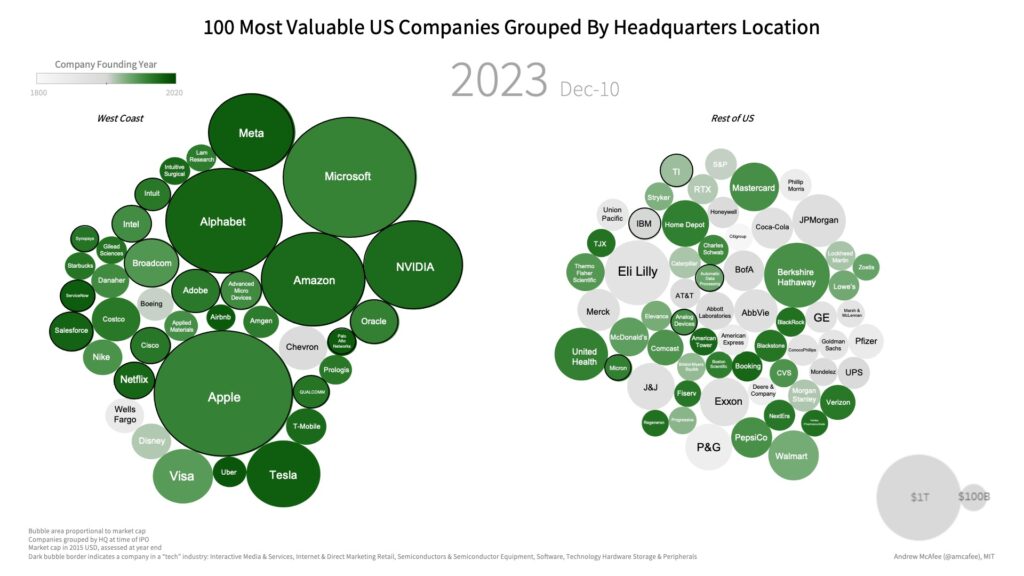
The most important innovation in tech isn't what companies make but how they make them, according to New York Times bestselling author Andrew McAfee. The codirector of MIT’s Initiative on the Digital Economy shared insights from his new book, The Geek Way: The Radical Mindset that Drives Extraordinary Results, in a discussion with Carl Bass, former president and CEO of Autodesk, at CHM Live.
McAfee was inspired to write the book to explain what's been happening on the West Coast over the past 20 years. The region has grown to include nearly 60% of the 100 most valuable companies in the US, including Microsoft, Apple, Alphabet (Google’s parent company), Amazon, Meta (Facebook), and NVIDIA. They are younger and more tech-oriented than the industrial-era companies located in the rest of the country that used to dominate.

McAfee believes that so-called geeks in Silicon Valley and Seattle have developed a better way to run a company in today’s fast-paced world. The “geek way” has four defining norms, or behaviors that peers expect: science, ownership, speed, and openness.
Andrew McAfee explains the four norms of the geek way.
No company embodies all four of the norms all the time or perfectly, of course, and, McAfee warns, “Bureaucracy is probably the greatest creeping danger for any company, geek or not.” He believes that no successful company does a lot of upfront planning and there is more “ambient egalitarianism” in Silicon Valley and the West than in most of the rest of the economy. The geek way is the exact opposite of what management gurus like General Electric CEO Jack Welch touted as the route to success decades ago.
Andrew McAfee challenges industrial-era management advice.
Industrial-era companies succeeded by taking advantage of huge economies of scale, and to build railroads and provide electricity, companies needed hierarchy and structure. Today, with the constant change generated by technology, problems can’t be solved that way. Geek companies reduce process and structure to the bare minimum.
McAfee explains why the geek way works through the concept of "cultural evolution." Humans are the only species on earth that comes together in large groups of unrelated people and cooperates intensely, and we learn fast. Geek norms capitalize on what humans are good at and mitigate what we’re bad at.
The geek way, for example, harnesses the human tendency of overconfidence. We are bad at evaluating our own ideas, but we're good at evaluating other people’s ideas. Geeks are very good at using science to evaluate ideas. Geeks also channel the innate human desire for high status by aligning it with the goals of the company and removing incentives that don't help or lead to bureaucracy.
So, can an old company learn these new tricks? McAfee says "yes."
Andrew McAfee challenges industrial-era management advice.
McAfee quotes venture capitalist Steve Jurvetson, who says that the way software is created today is the way that everything will be created in the future. But, traditional education is still focused on preparing employees for the industrial era. Kindergarten kids do better at “the Marshmallow test,” which requires thinking like a geek, than MBAs. Rather than planning a strategy and jockeying about who will be the leader, the kids just try over and over until it works.
There’s a lesson there. If companies give their employees ownership and let them loose to experiment, and if they’re vigilant in fighting bureaucracy, they can foster a geek culture where everyone thrives.
The Geek Way | December 14, 2023
Free events like these would not be possible without the generous support of people like you who care deeply about decoding technology for everyone. Please consider making a donation.